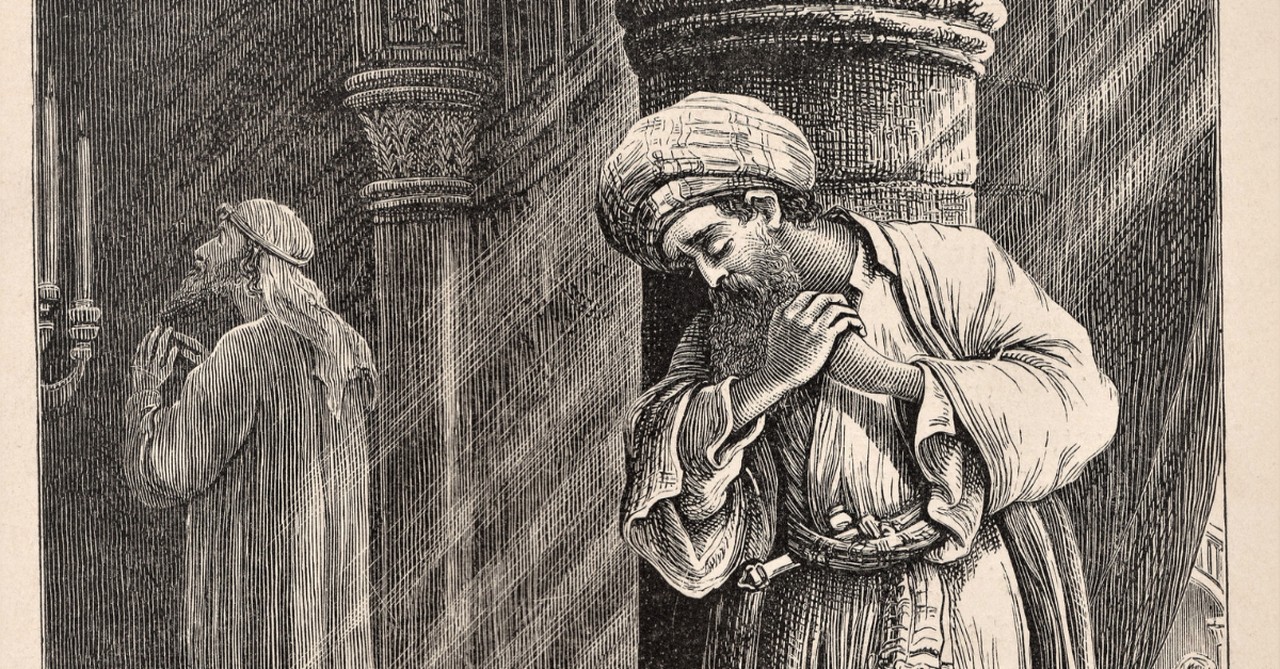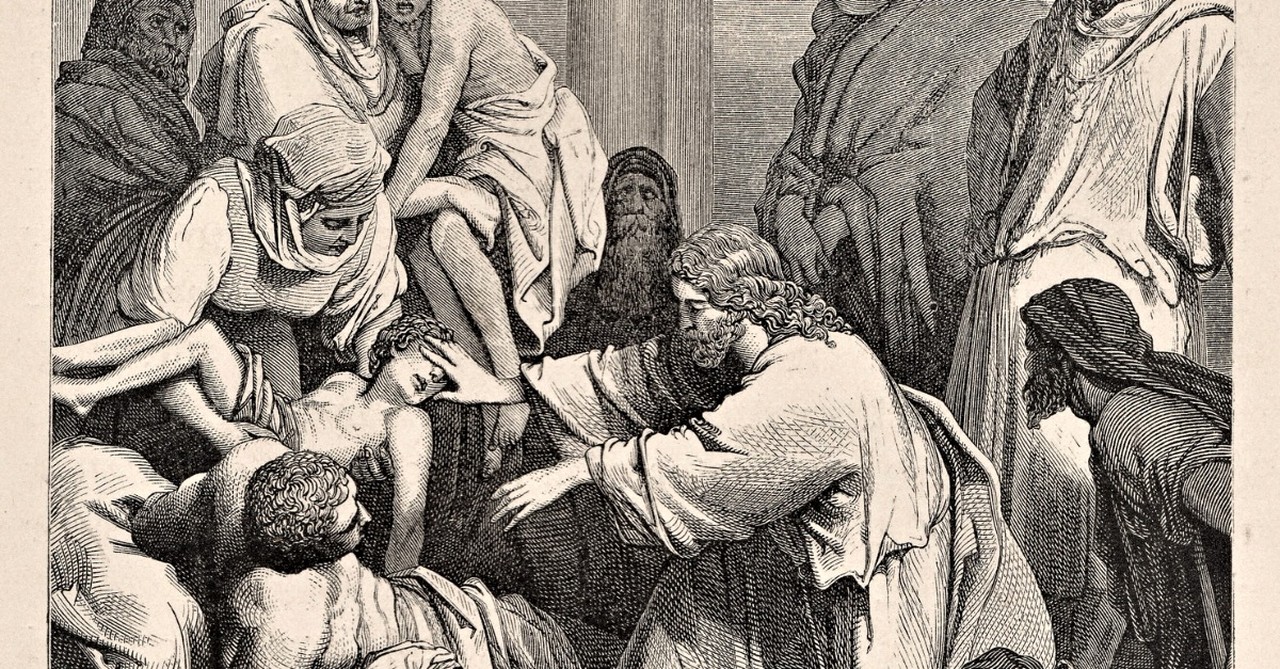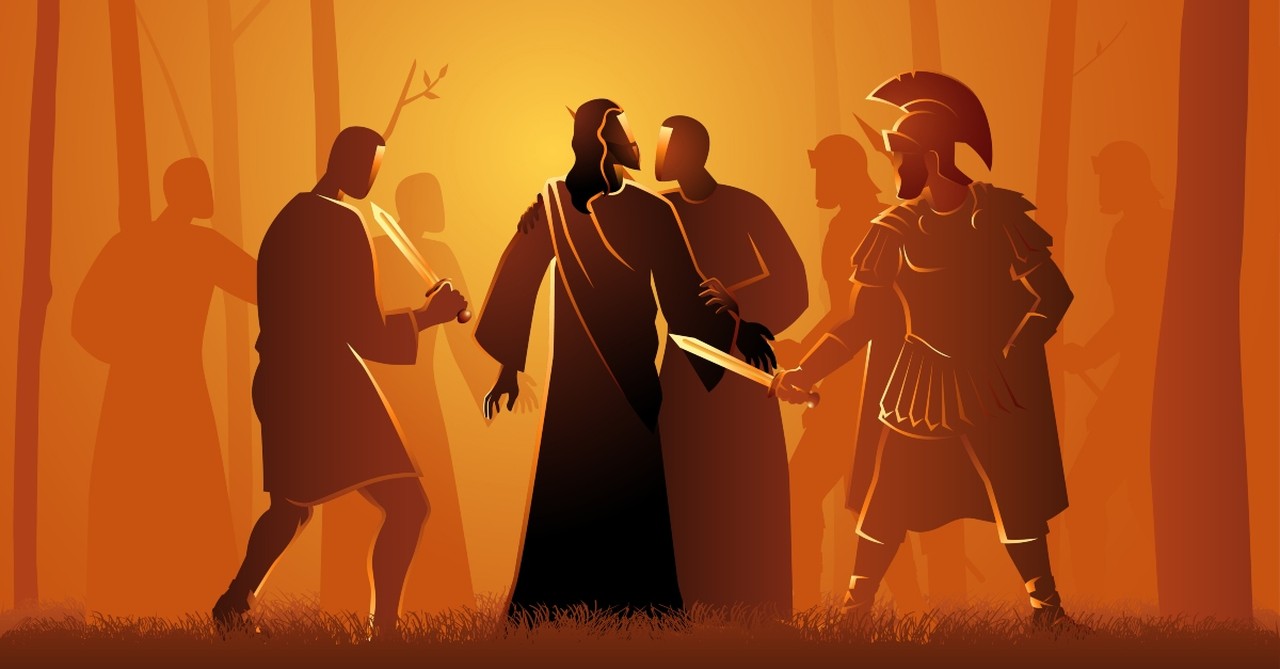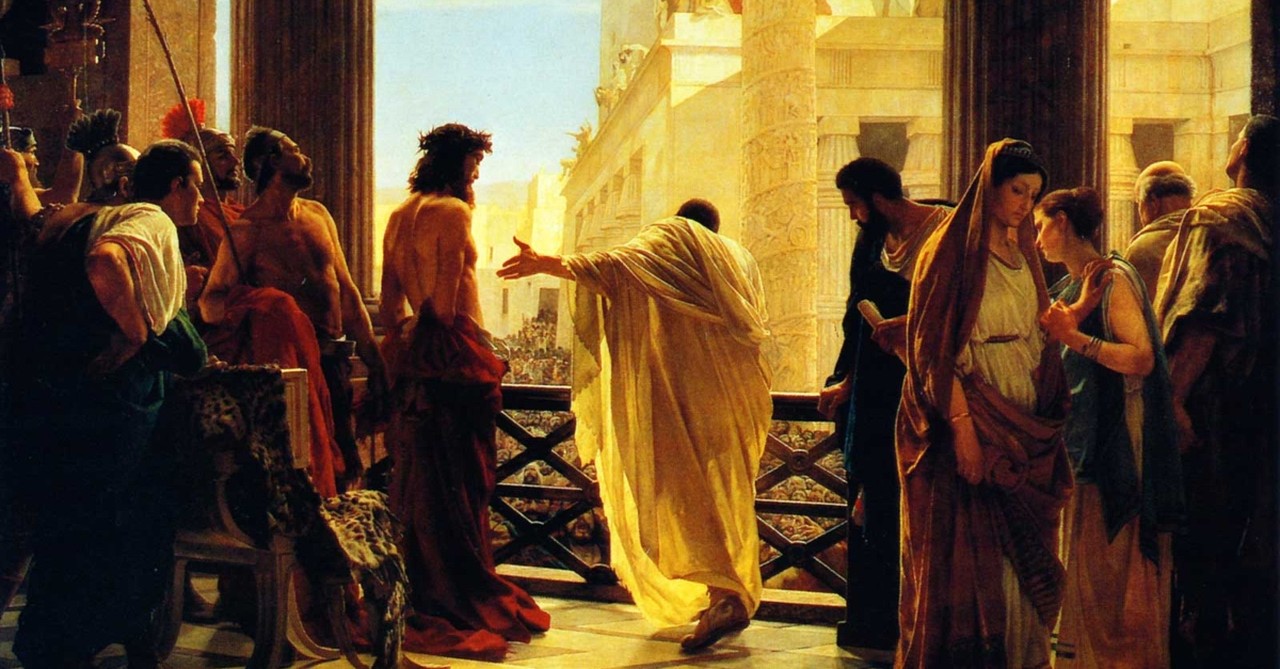The 6 Characters of Passion Week

Passion Week is the week immediately preceding Easter. This is the week Jesus was crucified and risen from the dead. There are a few key characters that played pivotal roles in this event. It is important we understand the roles these ordinary people had in Jesus’ death and resurrection. They are highlighted below, along with Bible verses to ponder and journal questions to answer:
1. Pharisees

1. Pharisees
SLIDE 1 OF 7
The Pharisees were experts in the law. Before Jesus’ arrival, the Pharisees were the people the crowds went to in order to get answers about their behaviors in alignment with the law. However, once Jesus came on the scene, the crowds started following him because of the miracles he performed. The crowds began to see there was something about Jesus, even before he revealed he was one with his father. This made the Pharisees jealous, and these evil intentions caused them to conspire to trap him in his words so they would have reasonable cause to bring him before the proper officials to have him crucified. One passage in Matthew demonstrates the Pharisees’ evil intent:
“Then the Pharisees went out and laid plans to trap him in his words. They sent their disciples to him along with the Herodians. ‘Teacher,’ they said, ‘we know that you are a man of integrity and that you teach the way of God in accordance with the truth. You aren’t swayed by others because you pay no attention to who they are. Tell us then, what is your opinion? Is it right to pay the imperial tax to Caesar or not?’ But Jesus, knowing their evil intent, said, ‘You hypocrites, why are you trying to trap me? Show me the coin used for paying the tax.’ They brought him a denarius, and he asked them, ‘Whose image is this? And whose inscription?’ ‘Caesar’s,’ they replied. Then he said to them, ‘So give back to Caesar what is Caesar’s, and to God what is God’s.’ When they heard this, they were amazed. So, they left him and went away.”’ Matthew 22:15-22
2. Sadducees

2. Sadducees
SLIDE 2 OF 7
The Sadducees were another group different from the Pharisees and had specific beliefs regarding the Resurrection. They believed there was no resurrection and came to ask Jesus a question. Although they asked the question regarding marriage in heaven with good intentions, when Jesus points out they are in error the crowds become astonished at Jesus’ teaching. This entices the crowd to question who Jesus truly is and entices them to follow him, much to the chagrin of both the Sadducees and the Pharisees:
“That same day the Sadducees, who say there is no resurrection, came to him with a question. ‘Teacher,’ they said, ‘Moses told us that if a man dies without having children, his brother must marry the widow and raise up offspring for him. Now, there were seven brothers among us. The first one married and died, and since he had no children, he left his wife to his brother. The same thing happened to the second and third brother, right on down to the seventh. Finally, the woman died. Now then, at the resurrection, whose wife will she be of the seven since all of them were married to her?’ Jesus replied, ‘You are in error because you do not know the Scriptures or the power of God. At the resurrection people will neither marry nor be given in marriage; they will be like the angels in heaven.”’ Matthew 22:23-30.
3. Judas

3. Judas
SLIDE 3 OF 7
Another of Jesus’s disciples is highlighted during Lent because of his role in Jesus’ death. Up until now, Judas followed Jesus, participated in healing and driving out demons, and was the recipient of Jesus’ teaching. But secretly, his jealousy propelled him to conspire with officials to sell Jesus for thirty shekels. Judas was to locate Jesus and indicate to the soldiers who he was by greeting him with a holy kiss. The one he kissed was the one the soldiers would arrest for blasphemy:
“While he was still speaking, Judas, one of the Twelve, arrived. With him was a large crowd armed with swords and clubs, sent from the chief priests and the elders of the people. Now the betrayer had arranged a signal with them: ‘The one I kiss is the man; arrest him.’ Going at once to Jesus, Judas said, ‘Greetings, Rabbi!’ and kissed him. Jesus replied, ‘Do what you came for, friend.”’ Matthew 26:47-50
Thirty shekels, a wage equaling a couple hundred dollars in today’s economy, became the wage that led to his demise. Riddled with so much guilt over what he had done, he committed suicide. “When Judas, who had betrayed him, saw that Jesus was condemned, he was seized with remorse and returned the thirty pieces of silver to the chief priests and the elders. ‘I have sinned,’ he said, ‘for I have betrayed innocent blood.’ ‘What is that to us?’ they replied. ‘That’s your responsibility.’ So, Judas threw the money into the temple and left. Then he went away and hanged himself.”’ Matthew 27:3-5
Photo credit: ©Getty Images/rudall30
4. Peter

4. Peter
SLIDE 4 OF 7
Although Peter is one of Jesus’ twelve disciples, he plays a vital role in Jesus’ death as he is the disciple who denies Jesus. His denial furthers the officials’ case against Jesus, stating he is a blasphemer. If Peter stood up and confirmed Jesus was who he said he was, he may have stopped his crucifixion. However, because Peter cared more about his own protection and wanted not to be associated with Jesus for fear they would crucify him, he set in motion Jesus’ crucifixion:
“Now Peter was sitting out in the courtyard, and a servant girl came to him. ‘You also were with Jesus of Galilee,’ she said. But he denied it before them all. ‘I don’t know what you’re talking about,’ he said. Then he went out to the gateway, where another servant girl saw him and said to the people there, ‘This fellow was with Jesus of Nazareth.’ He denied it again with an oath: ‘I don’t know the man!’ After a little while, those standing there went up to Peter and said, ‘Surely you are one of them; your accent gives you away.’ Then he began to call down curses, and he swore to them, ‘I don’t know the man!’ Immediately a rooster crowed. Then Peter remembered the word Jesus had spoken: ‘Before the rooster crows, you will disown me three times.’ And he went outside and wept bitterly.”’ Matthew 26:69-74
5. Pontius Pilate

5. Pontius Pilate
SLIDE 5 OF 7
Pilate is the Roman governor of Judea. He was responsible for giving the order to crucify Jesus. At Jesus’ trial, Pilate asked the crowd which person, Jesus, or Barabbas, should be released, and which should be put to death. It was the governor’s custom at the festival to release a prisoner chosen by the crowd. At that time, they had a well-known prisoner, Barabbas. So, when the crowd had gathered, Pilate asked them, “Which one do you want me to release to you: Jesus Barabbas, or Jesus who is called the Messiah?” For he knew it was out of self-interest that they had handed Jesus over to him.” Matthew 27:15-18
Once the crowd names Jesus, Pilate washes his hands in front of the people, and it is no longer his responsibility. His desire to please the crowd rather than Jesus started his crucifixion.
6. Pontius Pilate’s Wife

6. Pontius Pilate’s Wife
SLIDE 6 OF 7
Although she’s only mentioned once, Pontius Pilate's wife plays a vital role in Jesus’ crucifixion. Matthew 27 says that she sent a message telling her husband not to have Jesus crucified because she was visited in a dream by an angel who told her to spare Jesus’ life. Her intention to obey the warning in the dream was meant to spare Jesus’ life but to no avail. Before Pilate gave Jesus over to be crucified, Pilate’s wife got a hold of her husband and told him not to kill Jesus: “While Pilate was sitting on the judge’s seat, his wife sent him this message: ‘Don’t have anything to do with that innocent man, for I have suffered a great deal today in a dream because of him.”’ Matthew 27:19
Prayer and Journal Prompts

Prayer and Journal Prompts
SLIDE 7 OF 7
As all of the examples above indicate, God can use ordinary people to further his kingdom. The question we must answer is: Some of the people above acted with their personal gain in mind, while others acted with the intention of saving Jesus. As we reflect this passion week, ask yourself, with what intentions do I act in Jesus’ name? Do we act with good intentions or bad ones?
Prayer:
Lord, Lent is a time when we reflect on the events leading up to Jesus’ death. It was ordinary people whose sinful actions resulted in his crucifixion. Lord, help us not to allow our sinful nature to get in the way of Jesus' work. Let us come to you, Lord, confessing our sins so that we may follow Jesus wholeheartedly and with a clear conscience. May this Lenten study remind us of how much we need Jesus’ resurrection for salvation and eternal life. It is through Christ’s grace we are saved, and Jesus died to save us all. Let us remember that the events of Lent paved the way for our intimate connection to God. Allow us to reconnect with you in powerful, intimate ways because of what Jesus did on the cross. Amen.
Journal Questions
Which person highlighted in this study do you resonate with the most? Why?
These ordinary people were used by God in powerful ways to pave the way for his plan for Jesus’ crucifixion and ultimate resurrection. In what ways can God use you in ordinary ways to make room for the work he wants to do both in you and others’ lives?
The actions of the people above depended upon the intentions of their hearts. Some had good intentions; others had evil intentions. How can you test the intentions of your heart? In what ways can you act with good intentions as you go about your day?

Originally published January 19, 2024.









